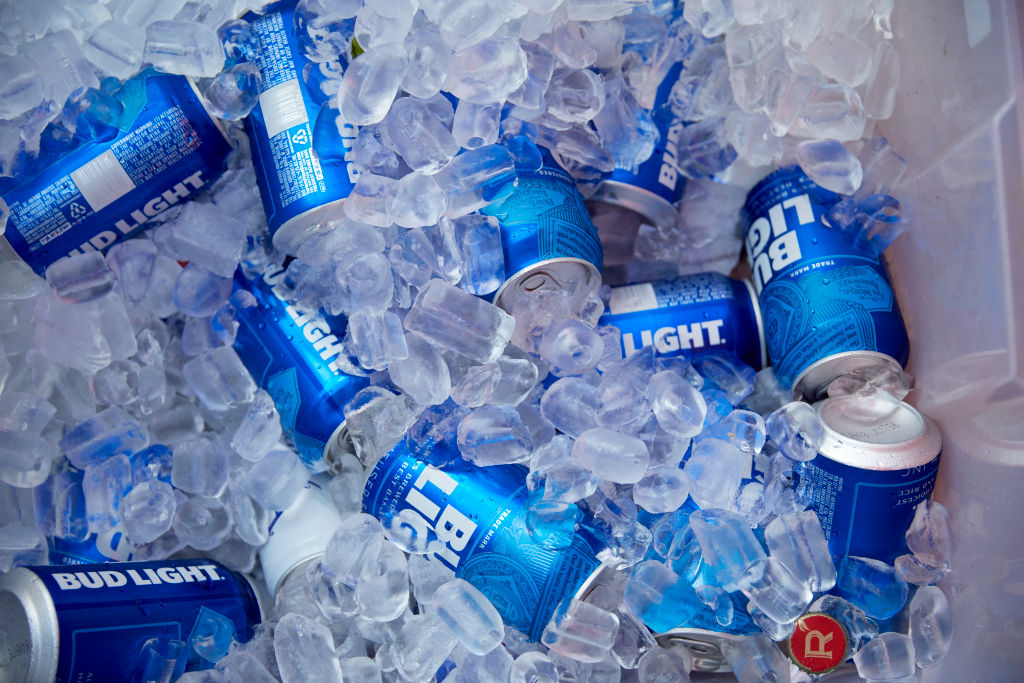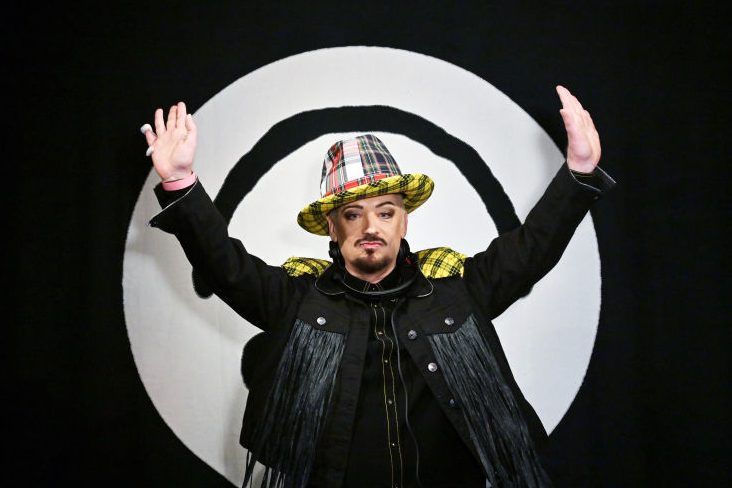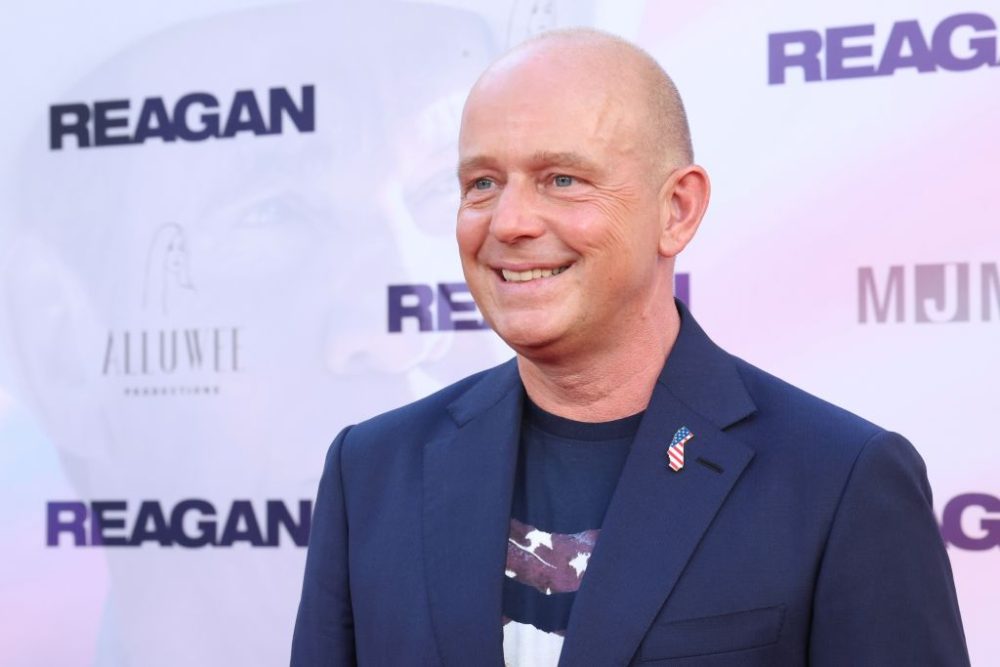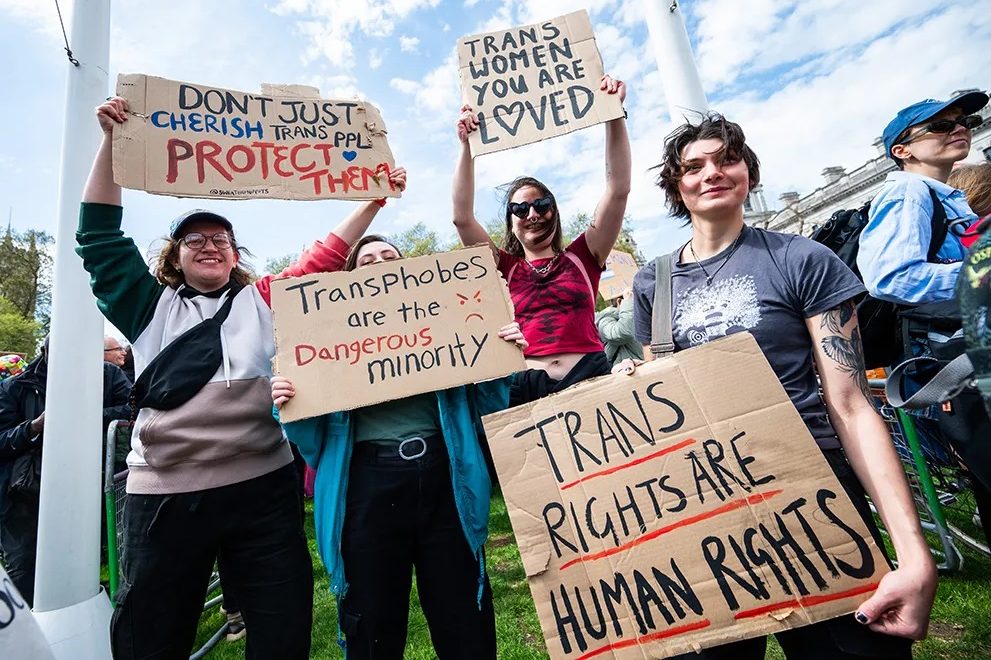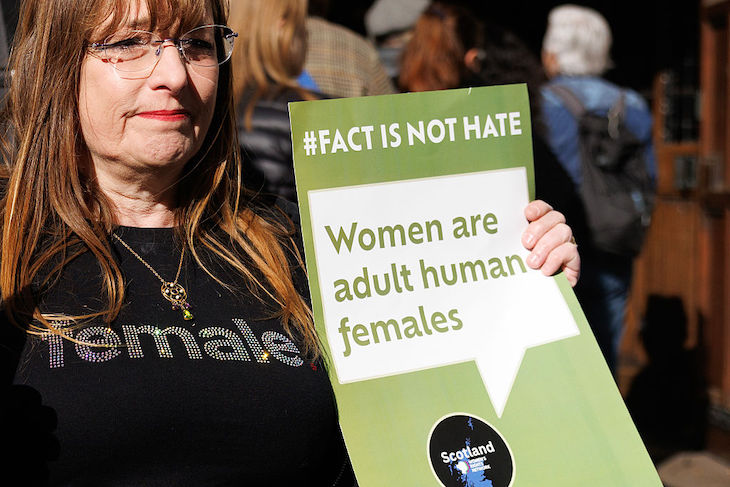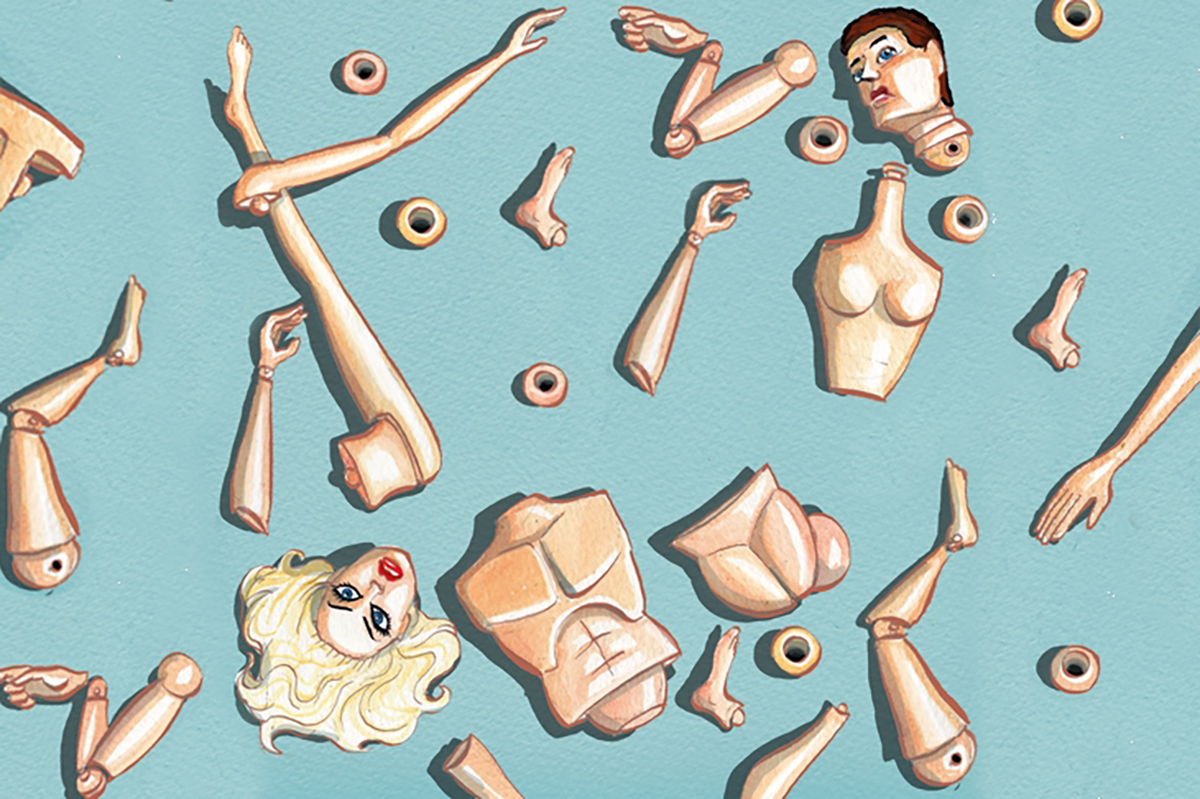If Budweiser is the King of Beers, as its slogan claims, then Bud Light has long been the Queen. Launched over forty years ago, in 1982, and now the world’s most successful low-calorie beer, “B Minus” has long occupied a funny sweet spot in America’s sprawling consumer conscience. Also known as “redneck soda,” “frat water” and “turtle jizz” — Bud Light is a product that conveys a mass-marketable sense of irony. That’s what ad men dream about.
But then, two months ago, Anheuser Busch, Bud’s parent company, did something stupid. Some marketing whizz decided it would be super-provocative to “partner” — as marketing drones like to say — with the trans influencer Dylan Mulvaney. Mulvaney promoted a can with his/her face on it to celebrate his/her first anniversary as a member of the opposite sex. This went viral in all the wrong ways and tapped into a social force that is now far more potent than blue-collar irony: the blue-collar culture war.
Presumably blinded by woke-corporate thinking, Budweiser forgot the secret of its own success
An angry online reaction began and just kept gathering speed: mass boycotts continued and anti-Bud hashtags sprouted up everywhere. And now sales are down almost 30 percent year-on-year. Retailers are slashing the price of Bud Light and Anheuser’s shares are crashing. Of course, other economic factors are at play — and Bud Light has been losing market share to Coors Light for some time.
Nonetheless, the Mulvaney stunt could be remembered as one of the worst marketing missteps in history. Publicity isn’t always good publicity and, in a cost-of-living crisis when rage-addicted Americans can instantly share their fury together, a major online blunder can cost millions, even billions.
Presumably blinded by woke-corporate thinking, Budweiser forgot the secret of its own success. From its launch in 1982, Anheuser successfully pitched Bud Light as a low-calorie lager that men drink. That was no mean feat. Bud Light didn’t have as much taste — it wasn’t as fattening — as traditional beer. But it was also refreshingly no-nonsense.
Anheuser’s trick was to realize that working-class Americans weren’t allergic to the idea of a diet beer. On the contrary, American men love nothing more than boozing and watching sports for hours and hours, because it’s fun, so Bud Light turned out to be a perfect drink. You can guzzle it down all day, because it’s light, and you still get plastered, because it’s 4.2 percent alcohol. And the more “trashy” the brand became in the eyes of snobs, the more blue-collar men, or larping college kids, adored Bud Light as something authentic and unstuffy. It’s so fake it’s real. That made Bud Light easily America’s most popular beer. But then it met Dylan Mulvaney.
This article was originally published on The Spectator’s UK website.



